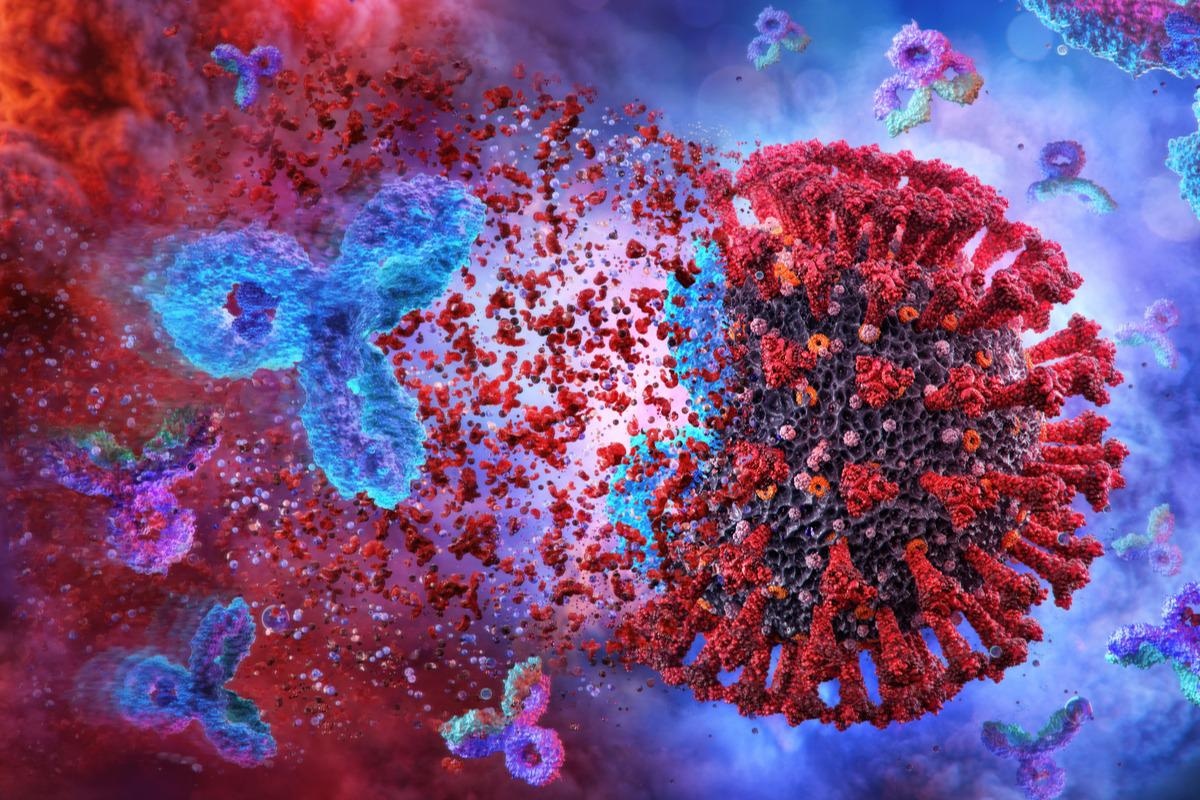In a recent study posted to the medRxiv* preprint server, researchers assessed severe acute respiratory syndrome coronavirus 2 (SARS-CoV-2) neutralizing antibodies in Chile.
 Study: SARS-CoV-2 neutralizing antibodies in Chile after a vaccination campaign with five different schemes. Image Credit: Corona Borealis Studio/Shutterstock
Study: SARS-CoV-2 neutralizing antibodies in Chile after a vaccination campaign with five different schemes. Image Credit: Corona Borealis Studio/Shutterstock

 This news article was a review of a preliminary scientific report that had not undergone peer-review at the time of publication. Since its initial publication, the scientific report has now been peer reviewed and accepted for publication in a Scientific Journal. Links to the preliminary and peer-reviewed reports are available in the Sources section at the bottom of this article. View Sources
This news article was a review of a preliminary scientific report that had not undergone peer-review at the time of publication. Since its initial publication, the scientific report has now been peer reviewed and accepted for publication in a Scientific Journal. Links to the preliminary and peer-reviewed reports are available in the Sources section at the bottom of this article. View Sources
The waning protection from natural as well as coronavirus disease 2019 (COVID-19) vaccine-induced immunity has worsened the morbidity and mortality caused by the pandemic. This has given rise to increased disease susceptibility and public outbreaks.
About the study
In the present study, researchers compared the various COVID-19 vaccination schemes in Chile according to the levels of SARS-CoV-2 neutralizing antibodies (nAbs).
The team measured the neutralization capacity in human serological samples by employing pseudotyped vesicular stomatitis virus (VSV) having a sequence that encoded for enhanced green fluorescent protein (GFP) that served as a reporter gene forming the VSV-GFP-Spike SARS-CoV-2 Wuhan strain. The samples analyzed in the study were collected from persons who were enrolled in a SARS-CoV-2 seroprevalence study.
A total of 2,198 serum samples were collected from individuals aged seven years and above in November 2021. Six distinct cohorts of SARS-CoV-2 positive samples were formed based on the reported history of natural infection using five vaccination schemes that were used most frequently, which included two CoronaVac (CC), two Pfizer (PP), CC followed by one Oxford AstraZeneca (CCO), CC followed by one Pfizer (CCP), and three Pfizer (PPP) vaccines. The team randomly selected 20 persons from each of the six groups.
The level of nAb response was evaluated according to the inhibitory concentration wherein 50% of the viral entry was inhibited (IC50). This IC50 was estimated for each serum sample by estimating the observed GFP fluorescence which showed the amount of VSV-GFP-Spike SARS-CoV-2 pseudotype viral entrance.
Results
The study results showed that 97.3% of the total serum samples analyzed were seropositive. Approximately, 82.5% of samples exhibited a nAb response while no significant differences were observed based on gender and age. Notably, the nAb levels were substantially higher in people who were non-smokers and in those who had received their COVID-19 booster vaccine doses. The nAb levels showed considerable variation as per the vaccination scheme used.
The team also observed that with respect to the nAb levels, the cohort displaying only a basal immunization scheme had nAb levels that were comparable to those in naturally infected patients. However, individuals who had received their COVID-19 booster vaccine showed nAb levels that were significantly higher than those in the primary vaccinated and the naturally infected individuals.
Furthermore, the team observed that PPP administration showed the highest median response of nAb, while no substantial distinctions were found post the administration of the CCP scheme. Moreover, the nAb response was notably higher than those in the CCO recipients. The team also found that the three booster vaccination schemes resulted in levels of nAbs that were remarkably higher than those in the naturally infected and the CC and PP-administered groups.
Among the basal vaccination schemes such as CC and PP administrations, substantially higher levels of nAbs were observed for the PP scheme than for the CC scheme. The team also found a waning of antibody titers for groups vaccinated with the basal schemes but not for the booster-vaccinated groups.
Overall, the study findings showed that the COVID-19 booster vaccine dose substantially increased anti-SARS-CoV-2 nAb levels, irrespective of the vaccination scheme or the nAb levels induced by natural infection.

 This news article was a review of a preliminary scientific report that had not undergone peer-review at the time of publication. Since its initial publication, the scientific report has now been peer reviewed and accepted for publication in a Scientific Journal. Links to the preliminary and peer-reviewed reports are available in the Sources section at the bottom of this article. View Sources
This news article was a review of a preliminary scientific report that had not undergone peer-review at the time of publication. Since its initial publication, the scientific report has now been peer reviewed and accepted for publication in a Scientific Journal. Links to the preliminary and peer-reviewed reports are available in the Sources section at the bottom of this article. View Sources
Article Revisions
- May 13 2023 - The preprint preliminary research paper that this article was based upon was accepted for publication in a peer-reviewed Scientific Journal. This article was edited accordingly to include a link to the final peer-reviewed paper, now shown in the sources section.